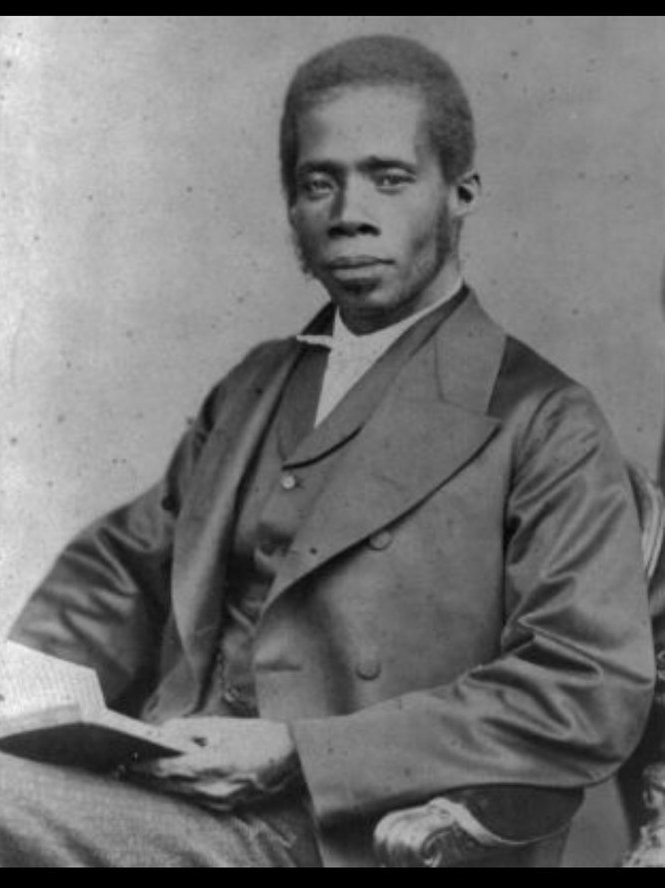The phrase “African Personality” was first introduced by Edward Blyden in a lecture titled Study and Race, delivered in Sierra Leone, Freetown on 19th May, 1893. African Personality was mainly informed by Blyden’s personal experiences of slavery and racism and also an attempt to challenge racist scientific theories.
Edward Wilmot Blyden was born on 3rd August, 1832 in the West Indies (St. Thomas of the Virgin Island) to free parents at a time when slavery had not been abolished.
In a quest to gain higher education, Blyden attempted to enroll in Rutgers Theological College, where he was refused admission and in two other theological Colleges, both of which proved futile because he was Black. For this reason, Blyden embraced many of the ideas of the American Colonization Society that promoted the repatriation of free African Americans to Liberia in West Africa. It was members of the New York Colonization Society who paid for Blyden’s passage to West Africa.
He first arrived in Liberia in January 1851 at the age of eighteen. Arriving in Liberia, Blyden attended Alexander High School in Monrovia where he studied theology, geography, mathematics and the classics. He excelled brilliantly and forged on to become a professor of Classic Languages at Liberia College, the first secular English speaking institution of higher learning in tropical Africa in 1862.
At the prime of his age, Pseudo-Scientific theories about Black race inferiority abound and of particular interest was the anthropological society of London in 1863 that placed the Negro on the lowest rank of the racial ladder. They argued that the Negro who allowed himself to be enslaved was mentally inferior. It was partly in response to these theories and the racial discrimination experienced that Blyden developed his own concept of race.
African Personality, according to Blyden is characterized by cheerfulness, love of nature and willingness to serve, by simple and cordial manliness and sympathy with every interest of actual life and every effort for freedom. One of the essential characteristic of the African was the spirit of service – the supple, yielding, conciliatory, obedient, gentle, patient, musical spirit that is not full of offensive resistance.
Being of the notion that all races are equal but distinct, he reckoned that each race was endowed with peculiar talents and had a different destiny. Each race had its own personality and mission likewise African customs and institutions which represented a significant aspect of the African Personality.

He differentiated between Africans and Europeans from geographical and climatic factors. The natural environment made it vital for Africans to be communalistic and cooperative. Social organisations such as the polygamous family, the rural community and the principle of mutual aid were part of African culture. The European was, however, seen to be individualistic and egoistic which led Blyden to draw the conclusion that “the African is an African and the European is a European and will remain so forever and ever”.
Edward Blyden called for cultural nationalism which meant for Africans to be proud and uphold the cultural practices and institutions that gave them the identity of an African personality.
He also advocated for spiritual colonization which urged Africans to shake off the spiritual bondage to which the assimilation of European culture had doomed them particularly in the case of educated Africans who admired the achievement of alien Western civilization.
Blyden encouraged the emigration of African Americans into Liberia, Sierra Leone and elsewhere in West Africa to help develop the continent and even advocated for the establishment of a West African University to train West Africans for self-government.
Blyden believed that the underdevelopment of Africa in the ninetieth century was due to historical factors such as slavery and slave trade rather than race. To Blyden, if equal opportunities were provided for both races, not even the average African could be outsmarted by the White man.
Blyden gained prominence in Liberia where he married into a prominent family and had three children with his wife, Americo-Liberian Sarah Yates. They had three children together and he also had five children with Anna Erskine, an African-American woman from Louisiana whom he had a long-term relationship with while living in Freetown Sierra Leone.
Before his death on 7 February 1912 in Freetown, Sierra Leone, where he was buried, Blyden had worked as a journalist, a professor, college president and diplomat serving as an ambassador for Liberia to Britain and France.










